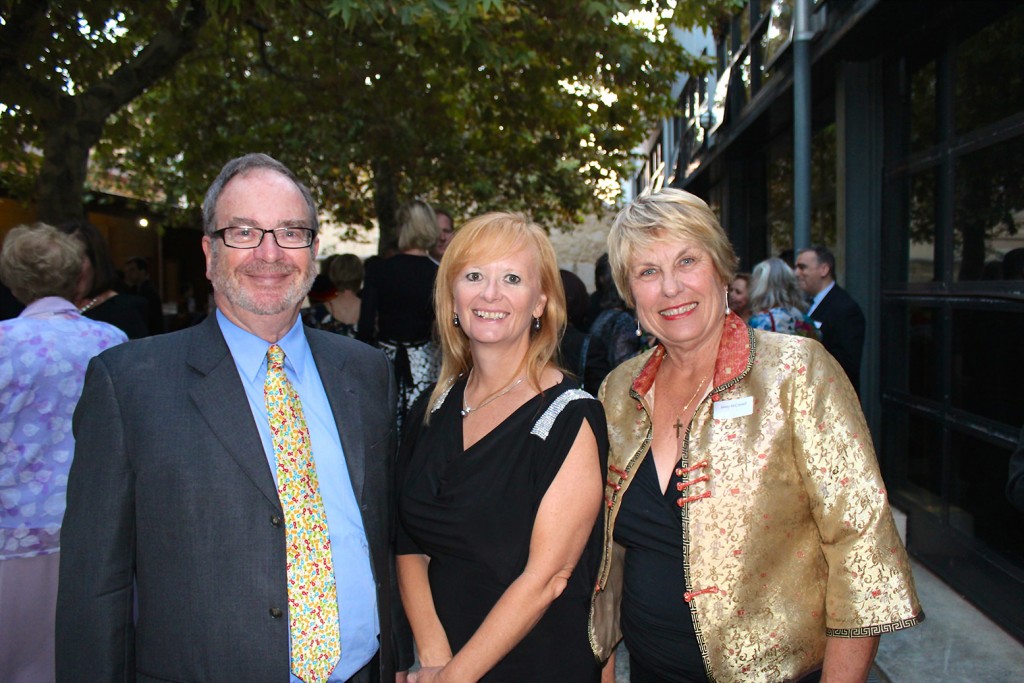
The University of Notre Dame Australia celebrated the 10th anniversary of the School of Medicine on its Fremantle Campus last weekend.
The university held a Mass and Gala Dinner on Saturday, 21 March 2015 to honour those who have inspired and shaped Australia’s first Catholic School of Medicine.
Officially opened on the University’s Fremantle Campus on 2 September 2005 by the now Prime Minister, the Hon Tony Abbott, Notre Dame’s School of Medicine has provided an excellent standard of education and training to hundreds of medicine students within a context of Catholic faith and values.
Since graduating the first cohort of 74 students in 2008, the school has graduated more than 600 doctors on the Fremantle Campus.
These doctors have had a significant impact on the delivery of health care across Australia, particularly in Western Australia and in regional and remote locations.
“The school is enormously proud of its graduates and thankful to the staff, volunteers and placement providers who have contributed to their training and education. It also acknowledges the support received from generous donors who provide scholarships and research funds,” said Professor Shirley Bowen, Dean of the School of Medicine, Fremantle.
Professor Bowen acknowledged the incredible support of both Perth’s public and private hospitals and, just as importantly, acknowledged the individual doctors who support the teaching and training of students.
“Through this ongoing support, our school can offer students practicum opportunities with hospitals, general clinics and community health services in order to graduate health professionals who are knowledgeable, skilful, diligent and ethical,” Professor Bowen said.
Alumna of the School of Medicine, Dr Jaimie Drysdale, said Notre Dame’s graduates were highly regarded in the medical profession due to their high level of clinical capability and the ability to think ethically and carry out their roles dutifully.
“Our clinical skills, our judgement and our breadth of experience are really well respected in the profession,” Dr Drysdale said.
Foundation Professor of the School of Medicine, Fremantle, Professor Mark McKenna, said the school is proud of delivering a medical education imbued with the Catholic values of compassion, respect and service, underpinned by the university’s Objects.
“The concentration on a core curriculum as part of a Medicine degree means that our graduates feel confident tackling issues that are important and otherwise remain unsaid or unaddressed,” Professor Mark McKenna said.
Another key unique feature of the school is its emphasis on meeting the healthcare needs of people living in rural communities.
The school’s Rural and Remote Health Placement Program is designed to develop medical professionals who are sensitive to the unmet health needs of rural Australians. Twenty five per cent of the student body participates in the joint UWA and UNDA Rural Clinical School which sees them spending the entire third year of their degree in a rural setting.
The program received an Australian Government Office for Learning & Teaching Award in 2013.
Further to this, 25 per cent of the school’s Commonwealth Supported Places are allocated to applicants with strong links to rural areas.
Notre Dame’s School of Medicine is working to fulfil further areas of unmet need through the Churack Chair of Chronic Pain Education and Research. This ground-breaking initiative, launched in 2013, will help improve the quality of life for people experiencing chronic pain in the community through ensuring Medicine graduates possess a comprehensive understanding of chronic pain, including strategies for treatment and pain intervention.